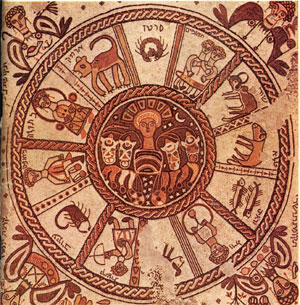Jim West has brought to our attention both the reassignment of Gerd Lüdemann and a petition to protest the fact that the German Supreme Court upheld that decision. According to the petition:
Gerd Lüdemann, Professor of the History and Literature of Early Christianity in the University of Göttingen, has received word from the Federal Constitutional Court in Germany that his appeal against an earlier ruling excluding him from the teaching of New Testament in the University’s Faculty of Theology has been rejected. The basis for the Court’s ruling hinges on the fact that Professor Lüdemann was “reassigned” to a position outside the Faculty offering essentially the same teaching and research opportunities as his previous position. In addition, the Court decided that the confessional teaching of theology is a unique responsibility of the Theology Faculty and that its interest in retaining a distinctive identity outweighed Professor Lüdemann’s claim that the reassignment impinged on his academic (“scientific”) freedom.
The assertion of the petition is that his reassignment was an infringement of his academic freedom. But I wonder if that is the case. I have to offer a few caveats. The first and foremost is that I have the greatest respect for Professor Lüdemann and his work. The second and third caveats are that I do not know US law very well let alone German law so my comments are more in the form of opinion than assertions of truth.
The topic of academic freedom has come up a lot lately. Stanley Fish has had some excellent essays on the matter (here) although many in the academy disagree with him (some on principal, because he is who he is, and some because they disagree with his view on this matter). The fundamental point is that there are limits to academic freedom. Furthermore, not all institutions have the same view and scope of what academic freedom is and scholars should be aware of that when they join the faculty.
Professor Lüdemann’s case seems to come up against the most obvious example of an institution that would place limits on such freedoms, a religious faculty. If I were employed by a Baptist seminary I would expect that the seminary would expect me to hold theological views in concert with the convention. I could (and should) of course be able to teach about other theologies and views, but they would, it seems to me, be within their rights to object were I to start teaching that Rome is the Mother Church, for example.
Of course, we can all think of schools of theology where not only are they not worried about any creedal obedience but they specificially hire and foster a diversity of religions (and sometimes anti-religious) views and convictions. I am not sure what the precise situation is with Professor Lüdemann’s appointment and faculty, but it appears that they were asserting that he ought to teach views in concert with the affiliations of the school. Professor Lüdemann’s words, as cited at The Bible and Interpretation site:
“The Supreme Court of Germany has ruled that even in Protestant Theological Faculties in Germany the creed of the church overrides the academic freedom of a professor of theology. I feel deeply ashamed of my own alma mater of Göttingen which claims to be an enlightenment-University.”
Now if I am not mistaken the German universities are state funded (Chris? Help me out here.). That would certainly change the matter in the US. If the school was receiving federal funds all sorts of requirements would have to be met with regards to employment (here is where my ignorance is really showing). But what I am wondering is why is this such a great injustice that a (and note the “even” in Professor Lüdemann’s quote Protestant theological faculty should expect their faculty to hold views in concert with their tradition? The factulty member may have the right to say and publish what they want but at some point the institution has the right to expect that the faculty conform to certain standards. In the case of a religious institution those standards will not be considered “objective” by many but does that make them any less valid? Apparently so, since the petition also says this:
Rooted in the political compromises of the Reformation, the structure of European theological education should become a matter of concern and a priority for reform by the educational commission of the European Union. It is an untenable position that institutions of higher learning, devoted as they are to the cultivation of knowledge through the use of established scientific methodologies, can fulfill their mission as long as particular faculties are immune from equivalent standards of rigorous inquiry, or where academic freedom is limited by confessional ideology and protected from scrutiny by tradition.
The questions in my mind are, “Are scholars being muzzled? Are they banned from publishing or teaching anywhere? Or simply in those institutions who have a stated affiliation?” In Lüdemann’s case it appears that his freedom has not been impigned since he continues to be employed in the university and teaching the same courses. That (according to the petition cited above) is the very basis of the court’s decision. It appears a compromise was reached.
The basis for the Court’s ruling hinges on the fact that Professor Lüdemann was “reassigned” to a position outside the Faculty offering essentially the same teaching and research opportunities as his previous position.
Professor Lüdemann is able to continue teaching and the Faculty of Theology is able to make a demarkation between teaching that represents their tradition and that which does not. The “word’ is still able to be free. This does not seem an injustice but rather a thoughtful solution to maintaining an open society that allows people of all faiths to express themselves and pass along their creeds and traditions.
So why the fuss? The petition was created by “The Committee for the Scientific Examination of Religion.” And now you know…the rest of the story.




3 thoughts on “Academic freedom or freedom of religion?”
Hi Chris,
I am a bit surprised that this story still stirs up so much emotions among NT scholars. I have been following the causa Lüdemann for many years now and am not surprised that the German High Court have come to this conclusion.
A bit of history might help here: In Germany the Protestant Churches developed as state churches in the principalities. Each principality had their own state university (Göttingen was the university of the Kingdom of Hanover), the prince was at the same time the leader of the church (there were no bishops, the prince was the highest bishop or “summus episcopus”). Ministers of the church were civil servants and sent to the universities for their training. With the end of the monarchy in 1918 the close link between church and state(s) was loosened, but not completely cut. Both church and state had a vital interest in keeping the good academic level of clergy training. It was agreed that the states would keep up theology departments in the universities and the church would have the right to nominate the professors. Each territorial church would therefore still have its own “home” faculty, such as Tübingen for Württemberg, Marburg for Hessen or Göttingen for Hanover and Braunschweig. The ministers of the church would still have the status of a civil servant (“Kirchenbeamter”).
As a professor at the theology faculty in Göttingen, Gerd Lüdemann was therefore paid by the state, but nominated by the church and acting on their behalf in teaching and training ordinands of that church. He was also an ordained minister (I assume that as there is a rule in Göttingen that all professors are ordained when they are given a professorship).
The problem arose when Lüdemann started a public campaign. He publicly declared himself not to be a Christian any more and accused the church of lying to its members. To claim academic freedom for actively attacking the church he was working for was going a bit too far. The solution to the problem was in my view a fair one: He was given his own institute in the university, doing the same stuff as before but not within the theology department.
I hope this helps.
Best
Tom
Tom – thank you very much! Since I posted this I have done more research and found out what you have just shared. As you might guess, I agree with your conclusions.